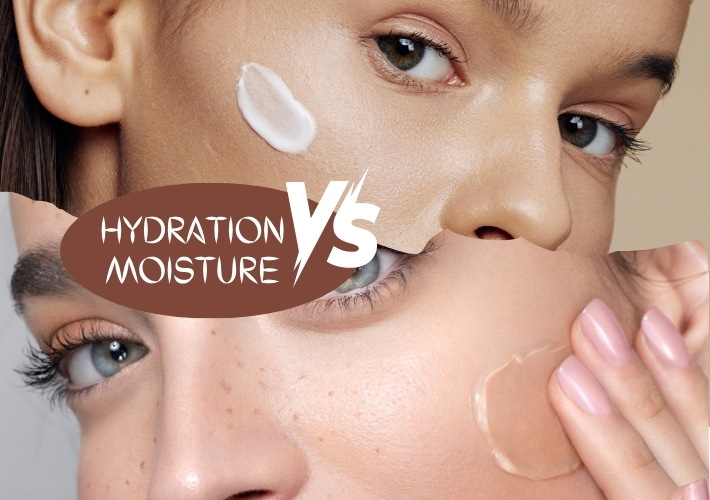
Is your skin thirsty or is it just in need of some moisturizing? Understanding the difference between hydration and moisture is key to achieving a healthy and glowing complexion. In this article, we delve into the topic of hydration vs. moisture to help you determine what your skin truly needs.
While the terms hydration and moisture are often used interchangeably, they actually refer to different aspects of your skin’s health. Hydration relates to the water content within your skin, while moisture pertains to the oil content. Both are vital for maintaining skin health, and finding the right balance is crucial.
When your skin lacks proper hydration, it can appear dull, dry, and rough. On the other hand, insufficient moisture can result in an imbalanced complexion, leading to breakouts and oiliness.
By understanding the needs of your skin, you can tailor your skincare routine to address specific concerns. Whether your skin craves a surge of hydration or a boost of moisture, we’ll guide you through the best products and practices to keep your skin looking and feeling its best.
Understanding the Difference between Hydration and Moisture
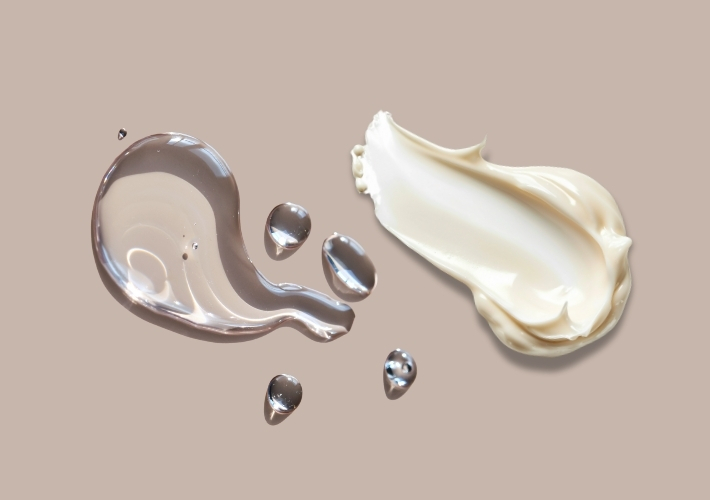
Your skin’s health is a delicate balance between hydration and moisture. While these two terms are often used interchangeably, they actually refer to distinct aspects of your skin’s well-being.
Hydration is all about the water content within your skin. When your skin is properly hydrated, it appears plump, supple, and radiant. Dehydration, on the other hand, can lead to a dull, rough, and uncomfortable complexion. Maintaining optimal hydration levels is crucial for overall skin health, as water is essential for various cellular functions and processes.
Moisture, on the other hand, pertains to the oil or sebum content in your skin. Sebum is produced by the sebaceous glands and helps to maintain the skin’s natural barrier, preventing moisture loss and protecting against environmental aggressors. Insufficient moisture can result in an imbalanced complexion, leading to issues like breakouts, flakiness, and an overly oily or dry appearance.
The Importance of Maintaining Skin Hydration
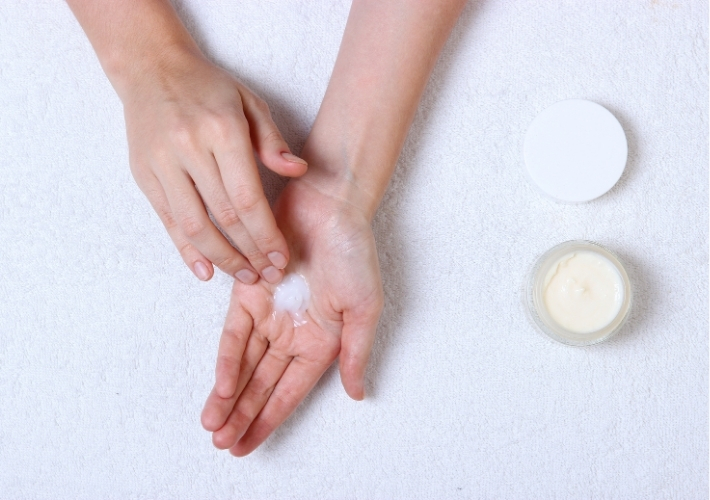
Hydration is a fundamental aspect of skin health, and it plays a crucial role in maintaining the skin’s overall function and appearance. When your skin is adequately hydrated, it can better perform its essential tasks, such as protecting against environmental stressors, regulating temperature, and facilitating the natural healing process.
Proper hydration also helps to keep your skin looking and feeling its best. Dehydrated skin can appear dull, rough, and prematurely aged, as the lack of water content can lead to the formation of fine lines and wrinkles. Adequate hydration, on the other hand, helps to plump up the skin, minimizing the appearance of these signs of aging.
Furthermore, hydration is essential for maintaining the skin’s barrier function. The outermost layer of your skin, known as the stratum corneum, is primarily composed of water and lipids. When this layer is properly hydrated, it can effectively prevent the loss of essential moisture and protect against harmful environmental factors, such as pollution and UV radiation.
Common Signs of Dehydrated Skin
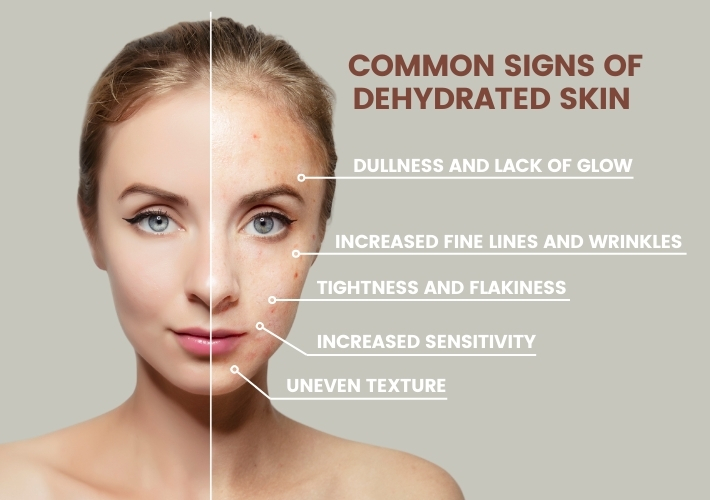
Identifying the signs of dehydrated skin is the first step in addressing the issue and restoring your complexion to its healthy, radiant state. Some of the most common indicators of dehydrated skin include:
- Dullness and lack of glow: Dehydrated skin often appears dull, lifeless, and lacking in that coveted “lit-from-within” glow.
- Increased fine lines and wrinkles: Without adequate hydration, the skin can lose its plumpness, leading to the premature formation of fine lines and wrinkles.
- Tightness and flakiness: Dehydrated skin can feel tight, uncomfortable, and may even start to flake or peel.
- Increased sensitivity: Dehydration can compromise the skin’s protective barrier, making it more susceptible to irritation and sensitivity.
- Uneven texture: Dehydrated skin may appear rough, bumpy, or uneven in texture, as the lack of moisture can lead to a buildup of dead skin cells.
If you’re experiencing any of these symptoms, it’s a clear indication that your skin is in need of a hydration boost.
Identifying the symptoms of a dehydrated skin is the first step in addressing the issue and restoring your complexion to its healthy, radiant state.
How to Hydrate Your Skin from Within

Achieving optimal skin hydration goes beyond just applying topical products. In fact, addressing the issue from the inside out is just as important for maintaining a healthy, radiant complexion.
One of the most crucial steps in keeping your skin hydrated is to ensure that you’re drinking enough water throughout the day. Dehydration not only affects the skin, but it can also impact your overall health and well-being. Aim to drink at least 8 glasses of water per day, and more if you’re physically active or live in a hot or dry climate.
In addition to staying hydrated, incorporating water-rich foods into your diet can also contribute to skin health. Foods like cucumbers, watermelon, and leafy greens are excellent sources of hydration and can help to replenish the skin’s moisture levels from the inside.
Certain supplements can also be beneficial for maintaining skin hydration. Look for products containing ingredients like hyaluronic acid, which is a powerful humectant that can attract and retain moisture within the skin. Omega-3 fatty acids, found in fish oil supplements, can also help to support the skin’s natural barrier and lock in hydration.
By nourishing your skin from the inside out, you can help to ensure that it remains well-hydrated and radiant.
Top Tips for External Hydration
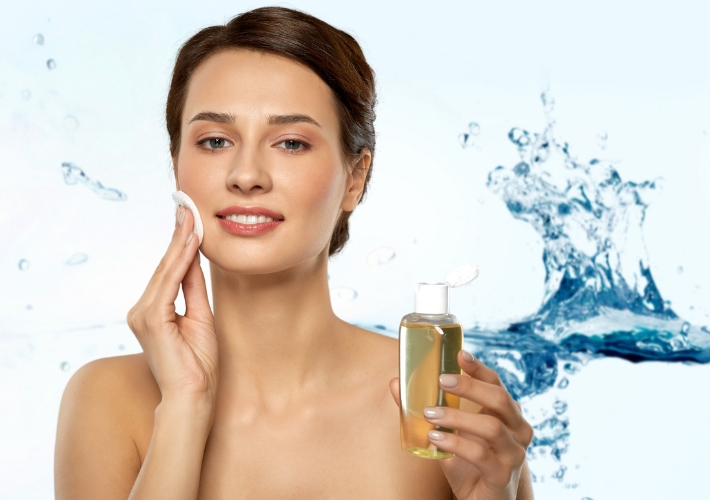
While internal hydration is crucial, addressing your skin’s hydration needs from the outside is also essential for achieving a healthy, glowing complexion. Here are some top tips for external hydration:
Incorporate Hydrating Cleansers
Opt for gentle, non-foaming cleansers that won’t strip your skin of its natural oils and leave it feeling tight or dry. Look for cleansers with hydrating ingredients like glycerin, aloe vera, or hyaluronic acid.
Use a Hydrating Toner
Toners can help to restore the skin’s pH balance and prepare it for the next steps in your skincare routine. Choose a toner that contains humectants like glycerin or panthenol to draw moisture into the skin.
Apply a Hydrating Serum
Serums are concentrated formulas that can deliver a powerful dose of hydration to the skin. Look for serums containing hyaluronic acid, which can hold up to 1,000 times its weight in water, or other humectants like propylene glycol or sodium PCA.
Don't Forget Your Moisturizer
Moisturizers are essential for locking in hydration and preventing water loss. Choose a moisturizer that’s tailored to your skin type, and consider using a hydrating, water-based formula if your skin is particularly dehydrated.
Incorporate Hydrating Masks and Treatments
Weekly or bi-weekly hydrating masks can provide an intense boost of moisture to the skin. Look for masks containing ingredients like glycerin, honey, or ceramides to deeply nourish and replenish the skin.
By incorporating these hydrating steps into your skincare routine, you can help to ensure that your skin remains plump, supple, and radiant.
Weekly or bi-weekly hydrating masks can provide an intense boost of moisture to the skin. Look for the best facial masks for hydration containing ingredients like glycerin, honey, or ceramides to deeply nourish and replenish the skin.
The Role of Moisturizers in Skincare
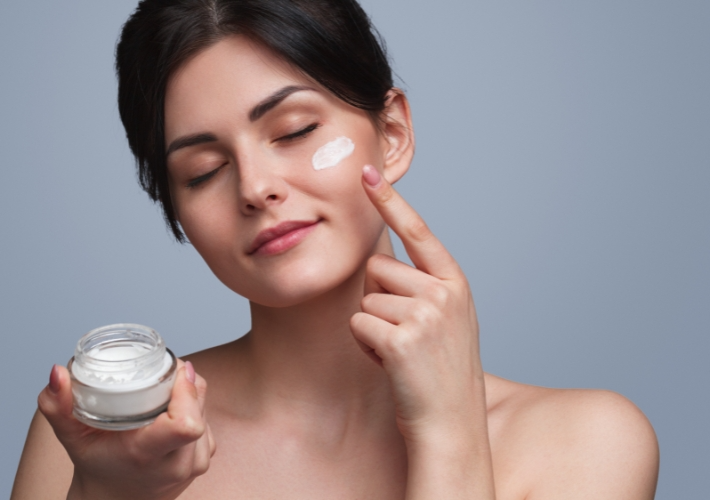
While hydration is essential for maintaining healthy, glowing skin, moisture also plays a crucial role in your overall skin health. Moisturizers are the cornerstone of any effective skincare routine, as they help to lock in hydration and prevent water loss.
Moisturizers work by forming a protective barrier on the skin’s surface, which helps to trap in moisture and prevent it from evaporating. This barrier also helps to shield the skin from environmental aggressors, such as pollution and harsh weather conditions, that can further compromise the skin’s natural moisture levels.
In addition to their hydrating properties, moisturizers can also provide other beneficial effects for the skin. Some moisturizers contain active ingredients like antioxidants, vitamins, or peptides, which can help to address specific skin concerns, such as fine lines, uneven texture, or dullness.
Choosing the right moisturizer for your skin type is crucial, as different formulations can have varying effects on the complexion. Oily or acne-prone skin may benefit from a lightweight, oil-free moisturizer, while dry or mature skin may require a richer, more emollient formula to replenish lost moisture.
Incorporating a moisturizer into your daily skincare routine is an essential step in maintaining a healthy, radiant complexion.
Different Types of Moisturizers and Their Benefits
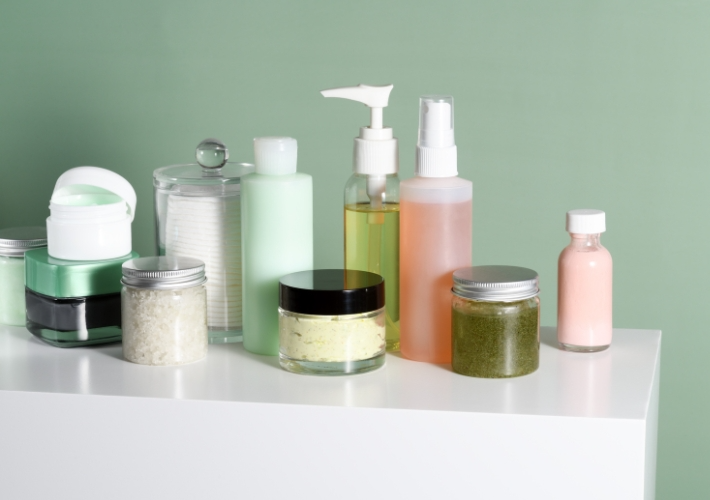
When it comes to moisturizers, there is no one-size-fits-all solution. The type of moisturizer you choose should be tailored to your specific skin type and needs. The type of moisturizer you choose should be tailored to your specific different types of skin and needs. Here are some of the most common types of moisturizers and the benefits they can provide:
Water-Based Moisturizers
Also known as hydrating or gel-based moisturizers, these formulas are lightweight and oil-free, making them an excellent choice for oily or acne-prone skin types. They provide a refreshing, non-greasy boost of hydration without clogging pores.
Oil-Based Moisturizers
Richer and more emollient, oil-based moisturizers are ideal for dry or mature skin types. These formulas contain nourishing oils, such as argan, jojoba, or coconut oil, which help to replenish the skin’s natural lipid barrier and lock in moisture.
Cream Moisturizers
Offering a medium-weight texture, cream moisturizers are suitable for a wide range of skin types, from normal to combination. They provide a balance of hydration and nourishment, helping to keep the skin supple and radiant.
Overnight or Sleeping Masks
These deeply hydrating formulas are designed to be used as the last step in your nighttime skincare routine. They work to intensely replenish and revitalize the skin while you sleep, leaving you with a refreshed, glowing complexion in the morning.
Targeted Moisturizers
Some moisturizers are formulated to address specific skin concerns, such as fine lines and wrinkles, uneven texture, or dullness. These specialized formulas often contain active ingredients like retinol, vitamin C, or alpha-hydroxy acids to help improve the appearance of the skin.
By understanding the different types of moisturizers and their unique benefits, you can choose the right formula to meet your skin’s individual needs.
How to choose the Right Moisturizer for Your Skin Type
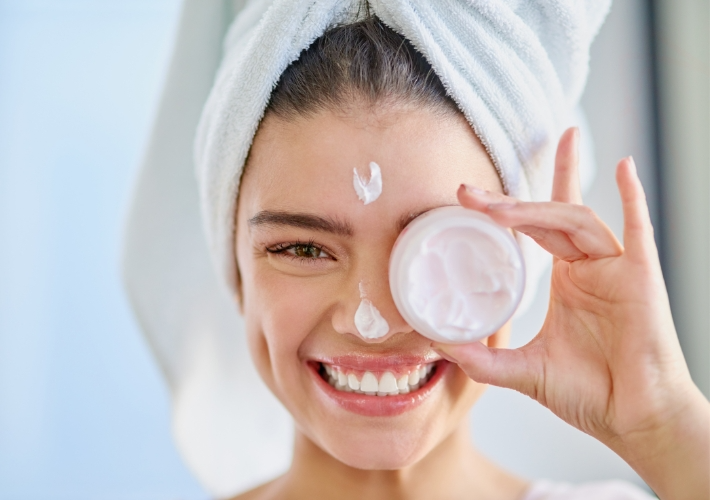
Selecting the right moisturizer for your skin type is crucial for achieving a healthy, radiant complexion. Here are some tips to help you choose the perfect moisturizer:
For Dry Skin
Look for moisturizers that contain emollient ingredients like shea butter, ceramides, or plant-based oils. These nourishing formulas will help to replenish the skin’s natural lipid barrier and lock in moisture. For oily or acne-prone skin type and hydrafacial frequency, opt for lightweight, oil-free moisturizers that won’t clog pores or contribute to breakouts.
For Oily or Acne-Prone Skin
Opt for lightweight, oil-free moisturizers that won’t clog pores or contribute to breakouts. Ingredients like hyaluronic acid, glycerin, or niacinamide can help to hydrate the skin without leaving it feeling greasy.
For Combination Skin
Choose a moisturizer that can address the needs of both the dry and oily areas of your face. A gel-cream or a water-based formula may be a good option, as it can provide hydration without feeling heavy or overwhelming.
For Sensitive Skin
Seek out moisturizers that are free of potential irritants like fragrances, alcohol, or harsh preservatives. Look for soothing, calming ingredients like aloe vera, chamomile, or centella to help nourish and protect the skin.
For Mature Skin
Opt for rich, creamy moisturizers that contain anti-aging ingredients like retinol, vitamin C, or peptides. These formulas can help to plump and firm the skin, while also addressing concerns like fine lines, wrinkles, and loss of elasticity.
By taking the time to understand your skin type and its unique needs, you can find a moisturizer that will help to keep your complexion healthy, radiant, and well-balanced.
Hydration vs. Moisture: Finding the Right Balance
Achieving the perfect balance between hydration and moisture is the key to maintaining a healthy, glowing complexion. While these two aspects of skin health are often discussed separately, it’s important to recognize that they work in tandem to support the overall well-being of your skin.
Adequate hydration ensures that your skin cells are properly nourished and functioning at their best. When your skin is well-hydrated, it appears plump, supple, and radiant. On the other hand, dehydration can lead to a dull, rough, and uncomfortable complexion, as well as the premature formation of fine lines and wrinkles.
Moisture, on the other hand, plays a crucial role in maintaining the skin’s natural barrier function. Sebum, the oil produced by the sebaceous glands, helps to lock in hydration and protect the skin from environmental aggressors. Without sufficient moisture, the skin can become imbalanced, leading to issues like breakouts, flakiness, and an overly dry or oily appearance.
To achieve the perfect balance, it’s essential to address both hydration and moisture in your skincare routine. This may involve incorporating hydrating serums, masks, and toners, as well as using the right moisturizer for your skin type. By addressing both aspects of skin health, you can help to ensure that your complexion remains healthy, radiant, and resilient.
Remember, the right balance of hydration and moisture can vary from person to person, and it may take some experimentation to find the perfect combination for your unique skin. Be patient, listen to your skin’s needs, and adjust your routine accordingly to achieve the glowing, healthy complexion you desire.
Conclusion: Prioritizing both Hydration and Moisture for Healthy Skin
In the pursuit of healthy, radiant skin, it’s crucial to prioritize both hydration and moisture. While these two terms are often used interchangeably, they represent distinct aspects of skin health that work in tandem to support the overall well-being of your complexion.
Proper hydration ensures that your skin cells are properly nourished and functioning at their best, while adequate moisture helps to maintain the skin’s natural barrier function and prevent water loss. By addressing both of these essential elements, you can help to keep your skin looking and feeling its absolute best.
Whether your skin is craving a surge of hydration or a boost of moisture, there are a variety of products and techniques you can incorporate into your skincare routine to address your specific needs. From hydrating serums and masks to nourishing moisturizers, the key is to find the right balance that works for your unique skin type and concerns.
Whether your skin is craving a surge of hydration or a boost of moisture, Arlington hydrafacial services can offer a variety of products and techniques to address your specific needs.
Remember, achieving a healthy, glowing complexion is an ongoing journey, and it may take some trial and error to find the perfect combination of hydration and moisture. But by listening to your skin’s needs and making the necessary adjustments, you can help to ensure that your complexion remains radiant, resilient, and youthful for years to come.
So, embrace the power of hydration and moisture, and prioritize both for the healthy, glowing skin you deserve.
